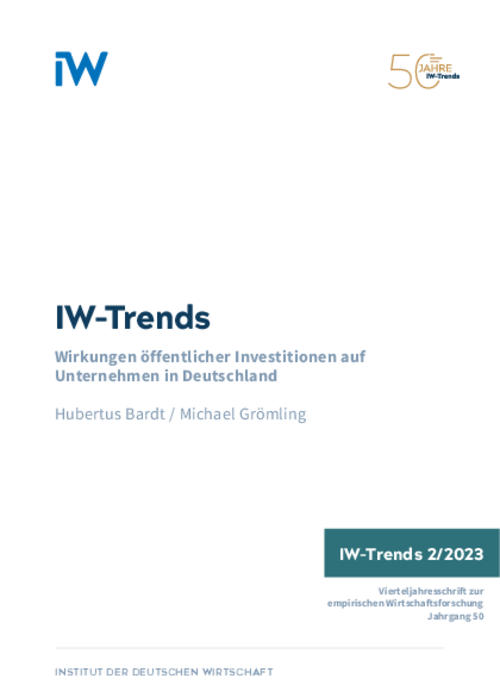Weak public investment activity in Germany has contributed to the low productivity growth of the last decades. Even maintaining the contribution to growth of state-owned capital stock at the already low level of the 1990s would have required an additional annual investment of some 45 billion euros.

Effects of Public Investment on Companies in Germany – Results of the IW Business Survey

Weak public investment activity in Germany has contributed to the low productivity growth of the last decades. Even maintaining the contribution to growth of state-owned capital stock at the already low level of the 1990s would have required an additional annual investment of some 45 billion euros.
Public investment also stimulates private-sector activity, as the current IW business survey shows for Germany. Public-sector investment spending particularly stimulates demand, but also helps companies to cope with the upcoming transformation processes and improves production conditions (due to better infrastructure, for instance). Around half of the firms surveyed expect state investment to have these at least slightly positive effects. A third of corporate respondents also note an increase in their own investment activity as a result of improvements to the business environment brought about by public investment.

Effects of Public Investment on Companies in Germany – Results of the IW Business Survey

More on the topic

Effects of the Middle East conflict on the German economy
Beyond the humanitarian crisis associated with the geopolitical conflict in Israel, which affects millions of human lives, the Middle East conflict also leaves lasting marks on economic activity not only in the affected region, but also in Germany and the ...
IW
Corporate Insolvencies on the Increase
After a prolonged decline, the number of corporate insolvencies has begun to rise again. The slight increase in 2022 could be interpreted as a step towards normalisation after the sharp drop experienced during the 2020/21 Covid19 pandemic.
IW